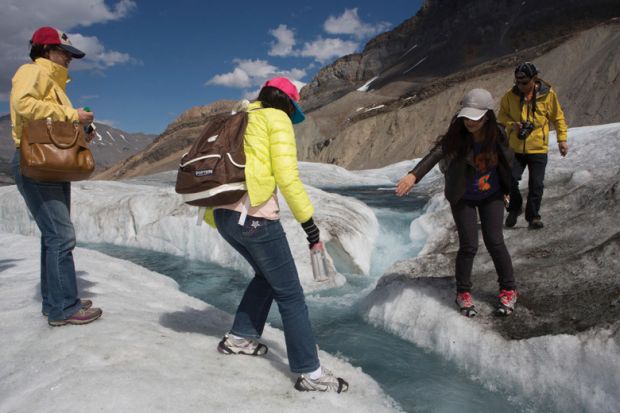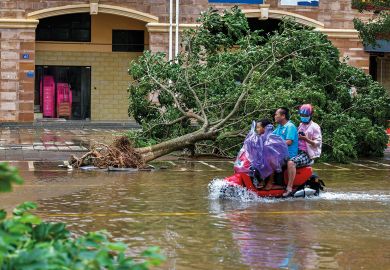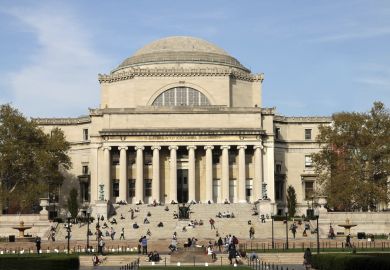As the UK has been clamping down further on immigration, Canada has been loosening its policies in a bid to become more welcoming to international students.
After changes announced last year, overseas students in the UK must now have more money in the bank before arriving to study, and earn at least £35,000 within five years of employment to be allowed to remain in the country. It is part of prime minister David Cameron’s long-held aim to cut net migration from the “hundreds of thousands” to the “tens of thousands”.
Meanwhile, in Canada in February, the government announced amendments to legislation that will make it easier for international students to become permanent residents, by reducing the number of days during which a person must have been physically present in the country before applying for citizenship and restoring the 50 per cent credit for time spent in Canada by international students. Last month, Canada’s immigration minister said the country would admit between 280,000 and 305,000 new permanent residents – the highest projected range in decades.
But David Turpin, who became the University of Alberta’s president in July 2015 after leading the University of Victoria for 13 years, told Times Higher Education that he “envies” the UK’s position – not because he wishes Canada had a stricter stance on immigration but because Canada’s provincial system makes it difficult for the country to attract undergraduate students from around the world.
“We look at some elements of the UK system with envy in that there’s a national system,” he said. “In Canada, we don’t have that same national focus on post-secondary education.”
He added: “The question is how do we more effectively integrate the post-secondary education system for international students, which is a provincial responsibility, with the federal immigration policy. That’s always a challenge.”
‘We are not the location of choice’
Professor Turpin said that this segregated system impacts overseas undergraduate numbers in particular; while only 14 per cent of the University of Alberta’s undergraduates are international, this rises to 35 per cent at the graduate level.
“We are not the undergraduate location of choice because we have 10 different provinces responsible for education, so it’s hard to put forward a national perspective,” he said.
“That national image disappears when you’re choosing a graduate school, because what you’re looking for is who is the best person to work with in this particular area. We’ve been able to attract outstanding scholars.”
Another big challenge for the institution, and Canada as a whole, is its ageing professorial population. The average age of a professor at Alberta has risen steadily to 49.7 years, causing imbalance across the academic ranks, with the number of assistant professors dropping by nearly 40 per cent since 2009-10.
Professor Turpin said that faculty renewal is a key priority for the institution and Canadian universities more widely must “learn from our past mistakes”.
He said that in the 1960s and 1970s universities “grew dramatically…to deal with the baby boom” and so in the late 1970s and 1980s there was “no hiring because all positions were filled”. He noted that since 2008 there has been a “huge turnover” of staff again as those scholars that were hired in the 1960s retired, suggesting that the trend of an ageing population may “echo” again.
“In the 1980s, there were very few academic jobs in Canada. A whole cohort of real talent coming out of PhD programmes went on to do great things but they were lost to the universities," he said. "So how do you put in place a programme where the best make it into the university environment?”
Professor Turpin said that he is in talks with federal agencies about setting up a national programme to attract and retain young academics, so “we don’t risk losing a generation of scholars”.
On the challenge of leading a public university amid government funding cuts, Professor Turpin said that higher education institutions in Canada must “champion” the university system, while governments must ensure that institutions are “highly differentiated yet well integrated” to reduce competition.
“In Alberta, we have 26 post-secondary institutions, ranging from small and specialist institutions to ones with religious affiliations, to technical colleges to the University of Alberta. The only way I can justify making a case for Alberta to have a truly world-class university is if I champion the whole system,” he said.
“Every qualified young person in Alberta should find a place in the post-secondary education system.”
POSTSCRIPT:
Print headline: ‘We envy elements of the UK system’
Register to continue
Why register?
- Registration is free and only takes a moment
- Once registered, you can read 3 articles a month
- Sign up for our newsletter
Subscribe
Or subscribe for unlimited access to:
- Unlimited access to news, views, insights & reviews
- Digital editions
- Digital access to THE’s university and college rankings analysis
Already registered or a current subscriber? Login







